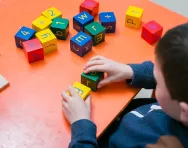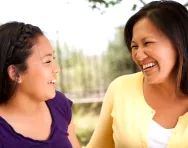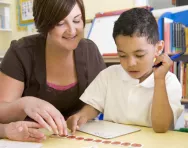Important update from TheSchoolRun
For the past 13 years, TheSchoolRun has been run by a small team of mums working from home, dedicated to providing quality educational resources to primary school parents. Unfortunately, rising supplier costs and falling revenue have made it impossible for us to continue operating, and we’ve had to make the difficult decision to close. The good news: We’ve arranged for another educational provider to take over many of our resources. These will be hosted on a new portal, where the content will be updated and expanded to support your child’s learning.
What this means for subscribers:
- Your subscription is still active, and for now, you can keep using the website as normal — just log in with your usual details to access all our articles and resources*.
- In a few months, all resources will move to the new portal. You’ll continue to have access there until your subscription ends. We’ll send you full details nearer the time.
- As a thank you for your support, we’ll also be sending you 16 primary school eBooks (worth £108.84) to download and keep.
A few changes to be aware of:
- The Learning Journey weekly email has ended, but your child’s plan will still be updated on your dashboard each Monday. Just log in to see the recommended worksheets.
- The 11+ weekly emails have now ended. We sent you all the remaining emails in the series at the end of March — please check your inbox (and spam folder) if you haven’t seen them. You can also follow the full programme here: 11+ Learning Journey.
If you have any questions, please contact us at [email protected]. Thank you for being part of our journey it’s been a privilege to support your family’s learning.
*If you need to reset your password, it will still work as usual. Please check your spam folder if the reset email doesn’t appear in your inbox.
The parents’ guide to developmental language disorder

Two to three children in every classroom are thought to have speech, language and communication needs, but they often go unrecognised. We take a look at what to expect and how to help your child.
According to Department for Education figures in 2018, over a quarter of children start primary school unable to communicate in full sentences.


Boost your child's maths & English skills!
- Follow a weekly programme
- Maths & English resources
- Keeps your child's learning on track
While some children will overcome this problem through a combination of education, socialisation and natural maturing, a number will be identified as having speech, language and communication needs (SLCN).
This may indicate that they have developmental language disorder, or DLD.
What are SLCN?
‘”Speech, language and communication needs” is an umbrella term that includes many types of speech and language difficulties that children and young people may face,’ says Amy Loxley, speech and language advisor for the charity ICAN.
This covers:
- Developmental language disorder (DLD), which affects a little over 7% of children.
- Language disorder associated with another condition such as autistic spectrum disorder (ASD) or cerebral palsy. This affects a little over 2% of children.
What is Developmental Language Disorder?
DLD is a difficulty with learning, understanding and/or using language.
‘Many children will have difficulties in all of these areas as the processes are so closely related,’ says Becky Clark, speech and language therapist.
Children with DLD may have:
- Difficulty with speech sounds, such as struggling to pronounce certain letters (e.g. saying ‘tar’ instead of ‘car)
- Difficulty with understanding, such as being unable to follow instructions like, ‘put your shoes on’ – also known as receptive skills
- Difficulty with producing language, such as saying, ‘play ball’ rather than, ‘I want to play with the ball’ – also known as expressive skills
- Difficulty using language appropriately and in context, such as taking turns and not interrupting, making eye contact and using facial expressions and body language – also known as social or pragmatic skills
You may have heard these difficulties referred to as specific language impairment, or SLI, but they are now known as DLD.
This has simplified the terminology used to refer to speech, language and communication difficulties, and changed the diagnostic criteria so that more children meet the necessary criteria for interventions like speech and language therapy.
DLD is a language disorder with no obvious cause, such as cerebral palsy, autism or hearing impairment.
Scientists think the part of the brain responsible for speech and language development may be wired differently, but the differences are too subtle to show up on a brain scan.
There may also be a genetic element.
Spotting the signs of DLD
DLD isn’t always easy to spot.
‘A child with DLD may have few outward signs of their language difficulties,’ says Becky. ‘Children can also be very good at masking their difficulties.’
Signs of DLD include:
- Problems communicating or learning at school.
- Difficulty paying attention or understanding what they have been asked to do.
- Appearing forgetful
- Using a limited range of words or struggling to put words together in sentences. Abstract words of time and quantity such as early and late, tomorrow, after and plenty are particularly difficult.
- Emotional difficulties like frustration and tearfulness.
- Challenging behaviour.
- Weak literacy skills.
- Difficulty forming friendships.
‘Sometimes, difficulties with listening and paying attention, and using their own verbal and non-verbal skills when interacting socially, can make it appear that a child has behavioural difficulties,’ says Amy.
‘For example, you may find your child has problems understanding the rules of the playground. This has a negative impact on their ability to get on in social situations and directly impacts their self-esteem.’
DLD at school
‘DLD may impact on academic success, literacy and social interactions,’ says Amy.
That’s why it’s important to find ways that their school can support your child.
One of the most important things is supporting you in getting a full assessment from a speech and language therapist (SLT).
You can arrange this through your GP or health visitor, or make direct contact with speech and language services in your area.
It’s helpful to ask your child’s teacher about signs of DLD that they may have spotted, and examples of their behaviour and how it affects them at school.
General measures that schools can put in place include:
- Breaking down instructions into smaller parts.
- Using visual supports to supplement spoken information, such as visual timetables.
- Being allowed extra time to process information.
- Repeating new vocabulary and sentence structures.
- Making sure the child has their attention focused on their teacher before giving instructions.
- Making links between words and concepts.
- Repeating words and ideas often.
- Double checking pupils have understood what the teacher has said and what they must do.
Supporting your child with DLD
‘Your speech and language therapist can advise you on the strategies that will best help your child, depending on their specific difficulties and areas of need,’ says Amy.
If you’re given exercises or tasks to do with your child, it’s important that you do them: most of the work needed to help with DLD will take place at home rather than in appointments.
Some of the things you can do at home include:
- Ensuring you have your child’s full attention before speaking to them.
- Breaking down instructions into smaller parts.
- Giving your child extra time to think before they respond to a question.
- Showing or demonstrating what you mean.
- Avoiding asking too many questions, and instead making comments about what your child is doing.
- If they make mistakes when talking, repeating it back to them correctly, in a positive way.
- Checking that your child has understood what you’ve said or asked them to do.
‘It’s also important to also focus on your child’s strengths and encourage them to do well and have successes in other areas of their lives, such as hobbies and sports,’ says Becky.
Is DLD outgrown?
With the right support, children with DLD can do very well.
‘That said, DLD does refer to language difficulties that are persistent and long-term, meaning children are unlikely to grown out of it,’ says Amy.
‘But if a child’s speech and language difficulties are identified at the right time, and the right interventions are put in place, the challenges they face are likely to be reduced.
For help and support with your child’s speech and language difficulties, visit Talking Point or contact the ICAN helpline on 020 7843 2544 or [email protected].








